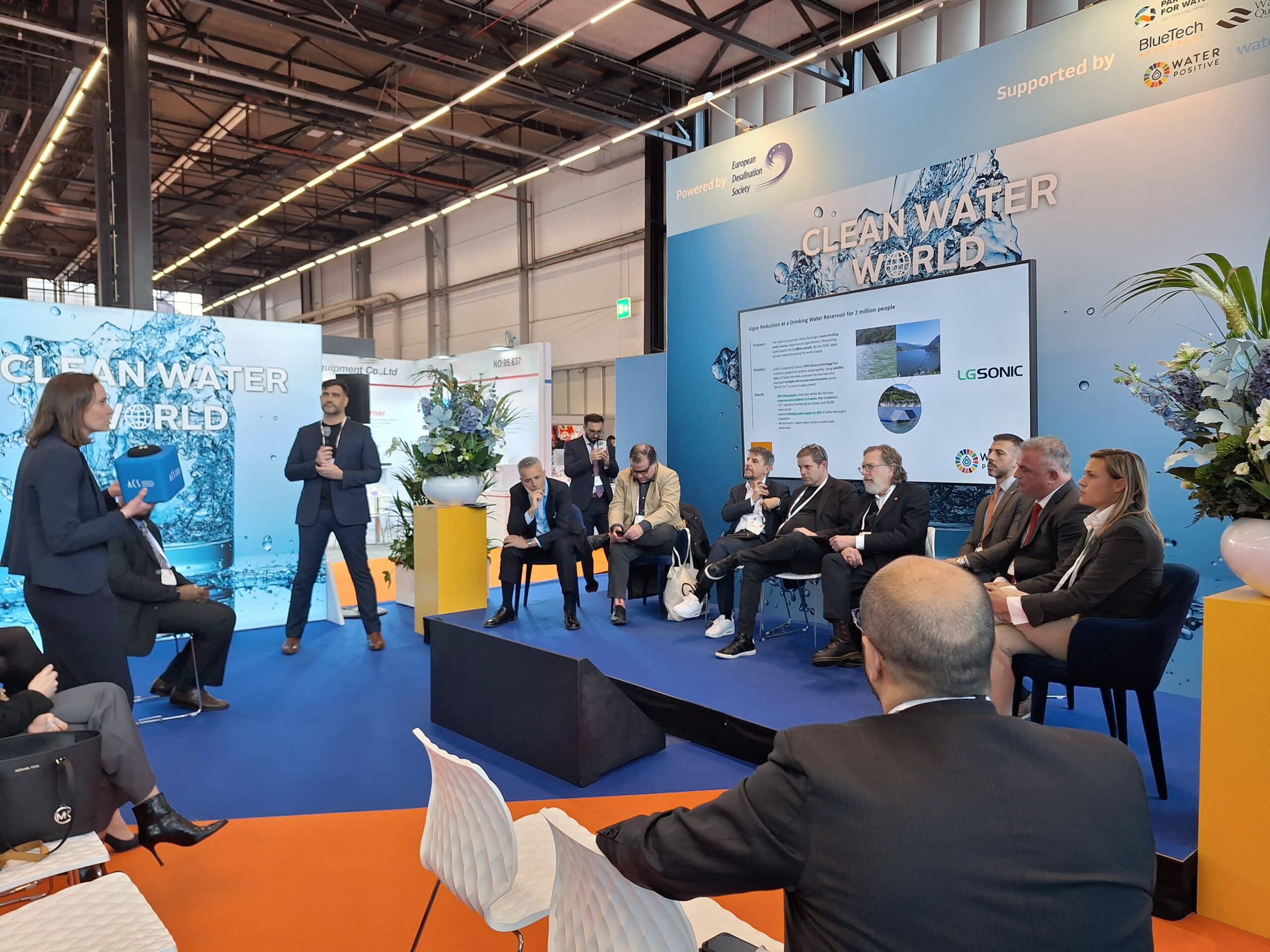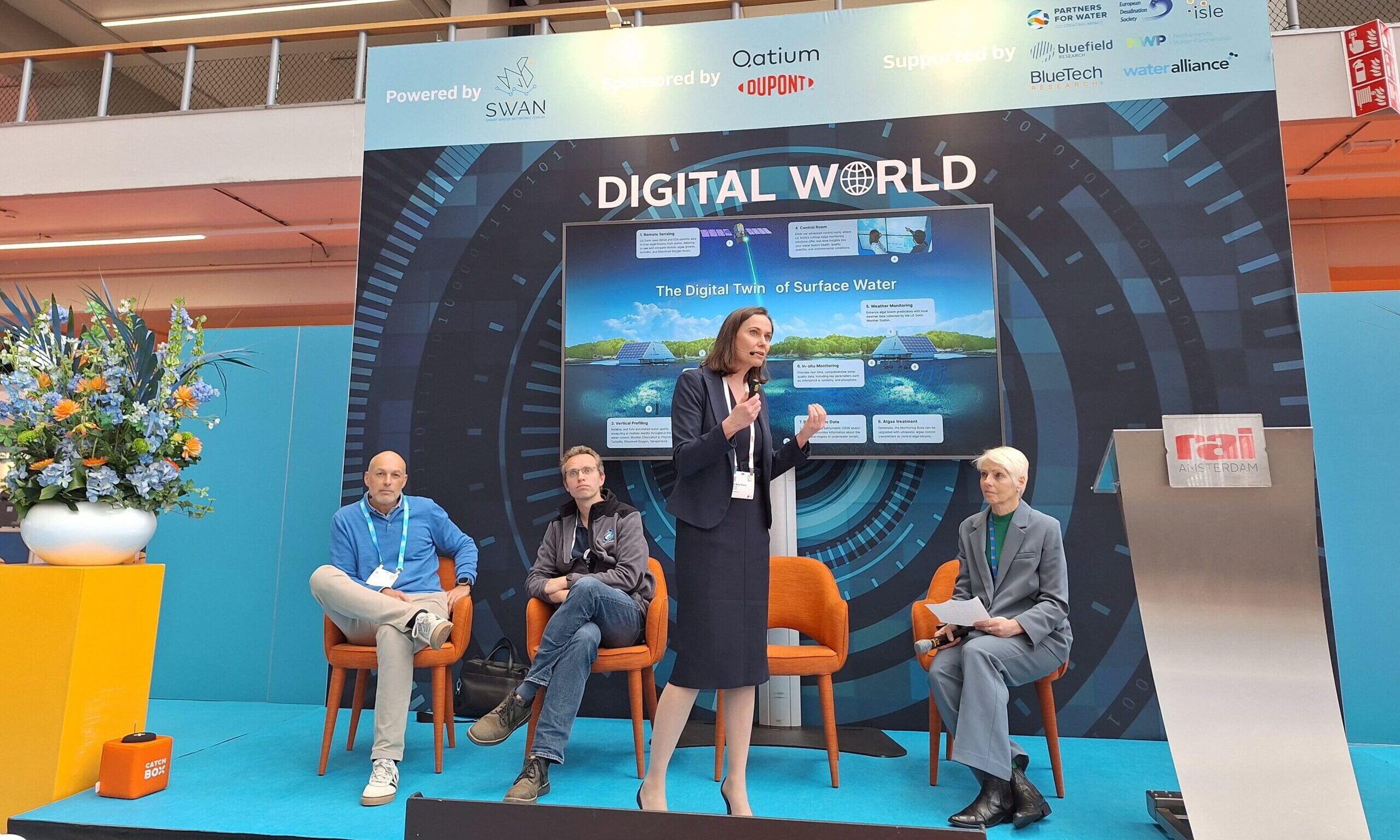Aquatech Amsterdam is the leading global trade exhibition for water technology innovations. It brings together professionals to showcase advancements in sustainable water solutions and smart water monitoring. At this event, LG Sonic presented its latest water quality monitoring and treatment solutions plus digital twin technology. Consequently, this reinforces its position as a leader in AI-powered water management and advanced water analytics.
Key Highlights from LG Sonic’s Participation in Water Quality Monitoring
Introduction to Water Management
Water management is vital in modern society. It includes the collection, treatment, and distribution of water for uses such as drinking, sanitation, and industrial processes. Therefore, effective water management ensures public health, supports economic development, and promotes environmental sustainability. As populations rise and climate change intensifies, the demand for water increases. Thus, it is essential to adopt innovative and efficient water management practices. Using advanced technologies and sustainable strategies, we can address these challenges and secure a reliable water supply for future generations.
Importance of Water Quality Monitoring
Water quality monitoring is crucial for ensuring the health and safety of communities, ecosystems, and the environment. It involves the sampling and analysis of water constituents and conditions to identify potential pollution problems, assess water quality, and inform management decisions. Effective water quality monitoring can help prevent waterborne diseases, protect aquatic life, and maintain the integrity of water infrastructure. By monitoring water quality, utilities and governments can identify areas of improvement, optimize treatment processes, and reduce operating costs. This proactive approach not only safeguards public health but also ensures the sustainability of water resources for future generations.
Current Challenges in Water Quality Monitoring
Despite its importance, water quality monitoring faces several challenges. One of the main challenges is the lack of real-time monitoring capabilities, which can lead to delayed detection of water quality issues. Traditional monitoring methods are often time-consuming, labor-intensive, and expensive, making it difficult to maintain consistent and comprehensive monitoring programs. Additionally, the increasing complexity of water systems and the presence of emerging contaminants require more advanced monitoring technologies. To address these challenges, utilities and governments are turning to innovative solutions such as artificial intelligence, machine learning, and IoT sensors. These technologies offer more efficient, accurate, and cost-effective ways to monitor water quality and ensure the safety of water and wastewater systems.
Workshops in the Integrated Leaders Forum: Water Quality & Water Reuse
Our CTO, Lisa Maria Brand, contributed to a roundtable panel in Workshop 2: Water Quality & Water Reuse, hosted by Christopher Gasson. Treated wastewater can be repurposed for various industrial uses, including cooling towers. This emphasizes the importance of efficient water management. Alongside industry leaders like Howard Neukrug, Geza Csornyei, and Rafael Zarate, she discussed strategies to enhance water reuse technology. As a result, this session provided insights into treatment solutions driving sustainability in the water sector.
The Role of Artificial Intelligence in the Water Sector
Artificial intelligence (AI) is transforming the water sector. It enables predictive maintenance, optimizes water treatment processes, and enhances water distribution networks. AI algorithms analyze vast amounts of sensor data to detect anomalies, predict water demand, and identify potential issues. Consequently, this proactive approach allows water utilities to reduce operating costs, improve water quality, and boost customer satisfaction. Additionally, AI helps optimize energy consumption in water treatment plants, making them more energy efficient and sustainable.
Panel Discussion on Aquastage: Digital World – Smart Monitoring and Forecast Dashboards with Artificial Intelligence
LG Sonic collaborated in a discussion on digital water technology in water management. Lisa Maria Brand shared insights on how digital twin models provide real-time data analysis and predictive simulations. The panel explored how AI-driven analytics help utilities and industries improve water quality monitoring. Moreover, the role of data scientists in implementing advanced technologies was highlighted.
Digital Twins in the Water Industry
Digital twins are virtual replicas of physical water systems. They use real-time data and analytics to simulate and predict system behavior. The integration of sensor data and hydraulic models optimizes performance and management, especially with climate challenges. Therefore, these models enable water utilities to test scenarios, optimize performance, and foresee potential issues. By leveraging digital twins, utilities can reduce operating costs, improve water quality, and enhance customer satisfaction. This technology empowers utilities to make data-driven decisions and respond more effectively to emergencies.
Real-time monitoring can be achieved through the use of advanced sensors, IoT devices, and data analytics. Analyzing historical flood patterns alongside real-time data can enhance flood mitigation strategies and improve overall water management. Predictive maintenance, enabled by these technologies, helps in identifying potential failures before they occur, ensuring continuous and efficient operation of water systems.
Real-time Monitoring of Water Quality Conditions
Real-time monitoring of water quality conditions is essential for effective water management. It enables utilities and governments to quickly detect changes in water quality, respond to emergencies, and optimize treatment processes. Real-time monitoring can be achieved through the use of advanced sensors, IoT devices, and data analytics. These technologies can provide real-time data on water quality parameters such as pH, temperature, dissolved oxygen, and turbidity. By leveraging real-time monitoring, utilities and governments can improve water quality, reduce operating costs, and enhance public health. This immediate access to data allows for swift action, ensuring that water quality issues are addressed before they escalate.
Predictive Maintenance for Water Infrastructure
Predictive maintenance is a critical aspect of water infrastructure management. It involves using data analytics and machine learning algorithms to predict when maintenance is required, reducing the likelihood of equipment failures and minimizing downtime. Predictive maintenance can be applied to various aspects of water infrastructure, including pumps, valves, and pipes. By leveraging predictive maintenance, utilities and governments can reduce operating costs, extend the lifespan of equipment, and improve water quality. This approach not only enhances the reliability of water systems but also ensures that resources are used efficiently, contributing to more sustainable water management practices.
Water Positive at Aquatech Amsterdam: Transforming the Water Treatment Market
LG Sonic took part in discussions on water-positive strategies and their impact on corporate sustainability. The session highlighted the importance of optimizing water usage in agriculture through AI and IoT. Experts emphasized the importance of transparent, scalable, and technology-driven water management. Consequently, LG Sonic was highlighted as an example of how water companies can restore ecosystems using innovative water treatment solutions. Real case studies were presented, demonstrating the impact of LG Sonic’s MPC-Buoy technology. This discussion reinforced how sustainable water technologies can contribute to environmental restoration.

Engagement at the NL Pavilion
LG Sonic was present at the Netherlands Pavilion at Aquatech. Our team engaged with industry professionals for catch-ups and meetings. Attendees had the opportunity to connect with us and explore how LG Sonic’s smart water monitoring solutions align with emerging challenges in water treatment technology.
Beyond our participation in key sessions, LG Sonic joined delegations hosted by the Netherlands Water Partnership (NWP). These engagements facilitated valuable international collaborations, fostering discussions on global water challenges and innovative water treatment solutions.
Shaping the Future of Water Management and Water Infrastructure
LG Sonic contributed to discussions on the EU Green Deal and the future of a safe and sustainable water cycle and wastewater systems. By driving digital transformation in water treatment, LG Sonic supports industries and municipalities in achieving smarter, more efficient water management. Advanced technologies like AI and IoT enable predictive maintenance in water supply systems. Incorporating historical flood patterns into predictive models can help in planning and managing future water infrastructure more effectively. All of these collaborations align with SDG 17: Partnerships for the Goals, emphasizing the importance of global cooperation in achieving sustainable water management.
